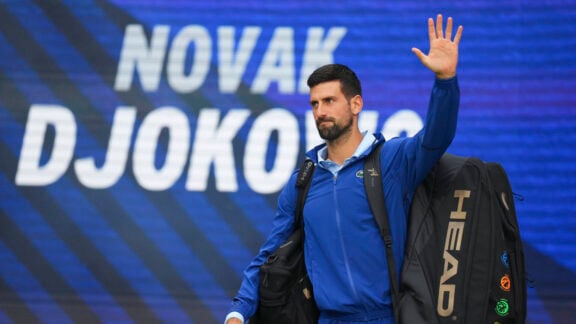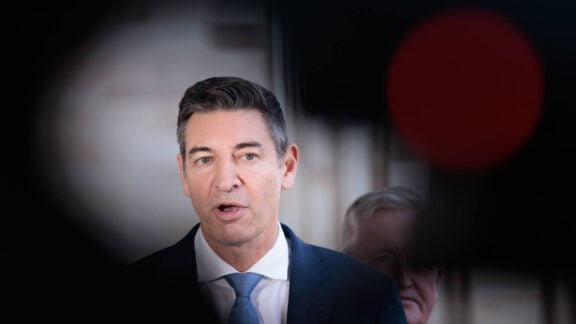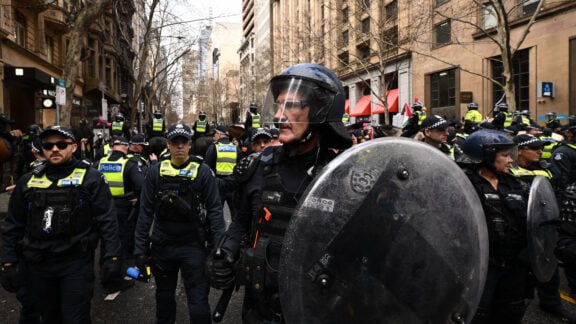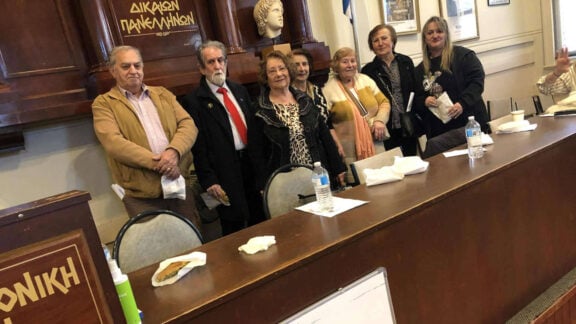“Anyone who knows about culture and civilisation cannot leave out Athens and Greece,” outgoing Chancellor Angela Merkel said on Friday in joint statements with Prime Minister Kyriakos Mitsotakis, noting that this will not be her last visit to the country.
“German-Greek relations were quite lively, I would say. The difficulties were a given when it came to the stability of the euro and I was personally fully aware of the excessive burden that this meant and the challenge that this meant for the people in Greece. In the end, we managed to find a common path, to keep in step for Greece to remain a member of the EU,” said Merkel.
“Once it was completed, when this phase was essentially over, we had to face another huge challenge, that of migration which started in 2015. We have shown that we can share responsibilities and I think that the EU-Turkey Agreement is an example that shows us that we can work together, and in this case work together with Turkey. I am aware of the large number of challenges that Greece faces when it comes to cooperation with Turkey. We discussed yesterday and today with intensity that United Nations resolutions and international law must apply, and we believe that it is important but difficult to find answers and solutions through dialogue,” she added.
“During the pandemic, on a bilateral and European level we showed that we can work together very closely,” Merkel said, concerning Greek-German relations, adding that this was one reason why she wholeheartedly supported the Recovery Fund.
“It was very important for recovery from the pandemic, especially for those countries that had been obliged to carry out a great many reforms and were then hit by the pandemic,” she added, noting that this would allow countries such as Greece, Portugal and Spain to make long-term investments and overcome the problems of the future, such as climate change, sustainability and preserving biodiversity.
She also noted that Greece, due to its geopolitical position and proximity to Turkey, also faced huge challenges at its external borders: “One can learn and be taught many things by Greece and from one another and many discussions led to very good solutions,” she said.
“I cannot but agree that most of the problems between Greece and Turkey are EU-Turkey problems, and within the framework of the EU there is unity. Despite the many things for which I can criticise Turkey, it is hosting 3.5 million refugees. In other words, Turkey accepts that it will be better if these people are in close proximity to their countries and this is what the EU-Turkey agreement is based upon. I made a commitment that we will be led to something that helps us but also helps Turkey, because Turkey must be supported and this applies in the case of Afghan refugees. We share these concerns because we don’t want traffickers to bring these people and instrumentalise them. I believe that we have a fully united stance in the EU and I am not afraid that we will be unable to reach a common stance,” the German chancellor said.
Asked about her stance toward Greece during the debt crisis, Merkel noted that the euro’s vulnerability to outside pressures had been a “shock” and that this had the greatest impact on countries with high debt “that had not done all that they should on the level of reforms”.
“I was always in favour of Greece remaining in the eurozone and I said that the efficiency of our economic system must be comparable otherwise we would not be able to keep the common currency alive. I know that I demanded a lot from the Greeks but, on the other hand, there were various governments in Greece that considered many reforms possible,” she said.
‘Greece achieved excellent results’ in resisting pressure on its external borders
Greece achieved “excellent results” when its external borders came under pressure from migrants, Merkel said on Friday. She also noted that the Turkish President, Recep Tayyip Erdogan, “was using people to achieve political goals.”
Merkel stressed that the EU “must not end up supporting smuggers and people traffickers” and get to the point where it was “people with the financial means and not refugees that are reaching us”.
“The problem we have today is that there are so many irregular migrants that we are not in a position, we cannot get to the people that need our help. The guarding of our external borders is the affair of some countries, which is why Frontex exists for support, and Greece achieved excellent results when pressure was put on its external borders. I said that Erdogan is exploiting people to achieve political goals. Lukashenko is doing the same. He is using people as a lever to exert pressure. As the EU, we cannot act as if the problem doesn’t exist. We must all assume our responsibilities. We have not reached that point yet,” Merkel said.
PM Mitsotakis: Austerity cannot be the answer to everything
Meeting German Chancellor Angela Merkel in Athens on Friday, Prime Minister Kyriakos Mitsotakis underlined that Greece was now a very different country to the one she first visited roughly 10 years ago.
“It is not a source of deficits. It is a modern state,” Mitsotakis underlined during joint statements with the German chancellor after a meeting between delegations of the two sides in the Greek capital.
Mitsotakis began by referring to the German Chancellor’s “16-year journey as the leader of Germany,” noting that it surpassed that of Konrad Adenauer and approached that of Helmut Kohl.
“As the 8th Greek Prime Minister to meet dear Angela, I can dare a brief review,” the prime minister said, noting that he wants to “talk about her stamp and about today’s Greece, which is very different from the one she has known over the last decade.”
Mitsotakis noted that “Europe and Greece were tested by mistaken decisions that came back to turn against them, disguised as populism and demagogy.”
“And you yourself admitted that you asked alot of the Greeks,” said the prime minister, adding that “fortunately neither cheap austerity nor the cheap nationalist slogans endured. Community solidarity and true patriotism were ultimately victorious.”
“Merkel was the voice of reason and stability. At times unfair, but decisive, as in 2015, when she refused the expulsion of Greece from Europe,” Mitsotakis added.
“As Europe progresses with [unanimous decisions], these are built on agreements, and therefore on convergences,” he said, describing the chancellor’s change of heart on the issue of the Recovery Fund as “courageous”.
“I had the opportunity to see all this at the summits where the Chancellor not only suggests solutions but shapes them,” Mitsotakis said, and highlighted the role played by Greece in the EU’s battle against Covid. “Greece proposed the certificate, organised a vaccination programme, pioneered in the creation of the Fund,” he pointed out.
“I know your firm position in favour of dialogue and the easing of tensions,” the Greek prime minister stated, referring to Greece’s relations with Turkey.
“I also always strive to keep channels of communication open but Western equanimity often serves to encourage Turkish arbitrariness. It is time for European principles to be transformed into European practice,” Mitsotakis underlined and added: “Greece only wants friends. It wants good relations, of course, with its neighbours, guided by international law and the law of the sea. But it does not tolerate threats. My position is crystal clear.”
Mitsotakis also stressed that austerity cannot be the answer to everything.
“Both the Franco-German pact and the treaty of mutual defence assistance between Greece and France can form a model of European strategic autonomy. The future is exciting for Greece, Germany and Europe,” he said.
Concluding, the prime minister stressed: “I welcome you with joy and I say goodbye with respect. Athens will be waiting for you as a friend. In your new course, do not forget Goethe’s words: “Of all peoples, the Greeks have dreamt the dream of life best”.
See also:







